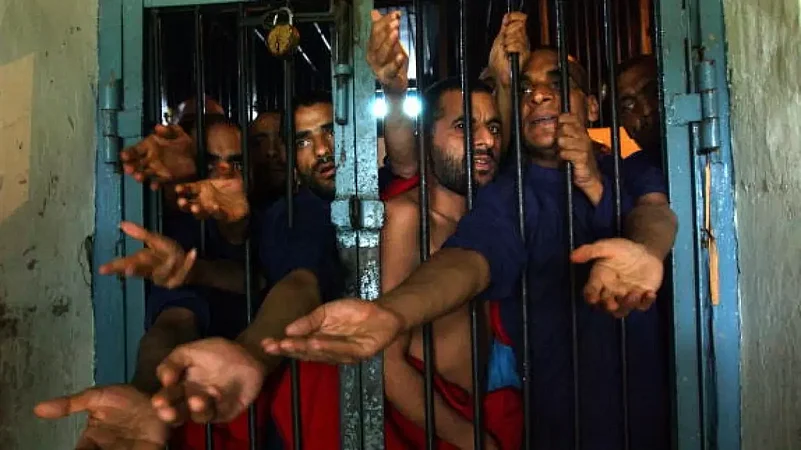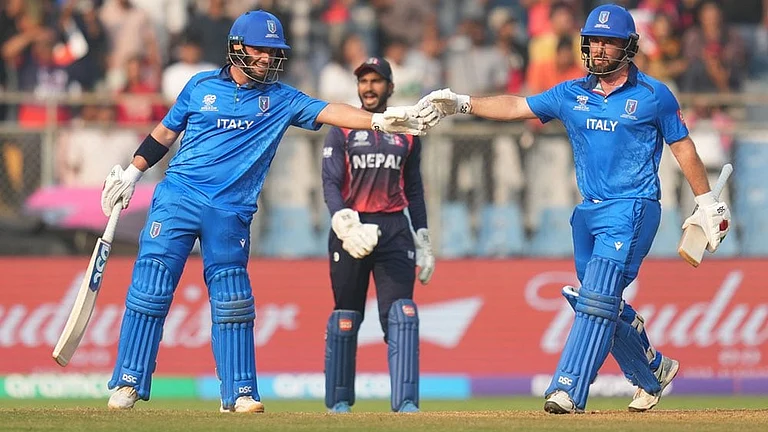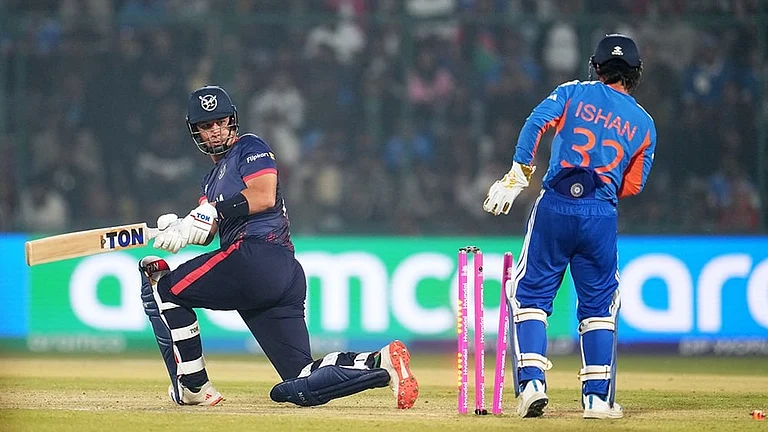Ritu*, a teenage daughter of an unwed mother, lived in extremely deplorable conditions. After her maternal grandparents quickly married off their daughter, they confined Ritu to a dilapidated and ill-maintained outhouse as they did not want her to ever see the outside world.
Ritu had no control over her personal hygiene. She was never taught about the menstrual cycle or how to use the toilet or how to even eat properly. Her 4x5 feet room was never cleaned of menstrual blood, urine, and faeces. She never saw sunlight or had any conversation with a human until she was rescued. By then, she had developed mental illnesses.
In 2017, Umang Foundation, a local non-governmental organisation (NGO), rescued Ritu from the remote village of Shimla in Himachal Pradesh’s Rampur after it received a tip-off from a lawyer. Her mental illnesses have a clear link with how she was deserted for being an ‘unwanted child’ and how she never received any parental care and was subjected to ill-treatment throughout her life. The psychiatric care was of course out of the question as even basic human treatment was never given to her.
The story of a young unnamed boy found wandering barefoot —and in hunger— at Chaila near Himachal’s Gumma in Shimla district is almost as heart-wrenching. He was beaten mercilessly by people around him on suspicion of being a drug addict after he failed to tell his identity and the place he belonged to. In the freezing winter, he was drenched as buckets of icy cold water were poured on him. The ordeal went on until a local journalist learnt about it and alerted Umang Foundation’s Ajay Srivastava, who then rescued him.
These two shocking incidents are just the tip of the iceberg of the cases of youths, women, and even physically challenged persons in the hills of Himachal Pradesh. They spend nights at rain shelters, rock caves, bus stands, and wayside eateries and survive on leftovers or food thrown with the garbage. They live in deplorable conditions, particularly during harsh winters. Their grave situation calls for effective intervention.
Padma Sampatha, an illiterate woman from Mysore, spent two years at Shimla’s government-run Mental Health and Rehabilitation (MHR) Institution because of the language barrier even though she had been fully treated. She could speak only Kannada, which no one at the hospital understood. She used to cry aloud and sit alone for hours in the psychiatric hospital ward looking at the walls, roof, and chirping birds outside. She could simply not tell where she wanted to go.
The hospital authorities made desperate efforts to establish contact with her family but every time they would end up in frustration. Finally, former Chief Minister Jairam Thakur reunited her with her family with the help of his wife Dr Sadhna Thakur, who finally learnt about her home as she could talk to her in Kannada as she knew the language.
Padma’s mental illness was attributed to her being abandoned after his father’s death because of poverty. She had no clue of how she reached Shimla. But even after all these years, she could recognise family members who reached Shimla to take her back with a team of government officials from Karnataka.
Padma first reached Nagrota in Kangra district in June 2016 — she has no idea how. She was first hospitalised at the Dr Rajendra Prasad Medical College, Tanda, and later was moved to Shimla.
Srivastava recalls his NGO Umang Foundation has rescued nearly 400 mentally challenged persons and has got them admitted either to the hospitals or sent them to shelter homes. The problem, however, doesn’t stop here as many more persons are frequently spotted wandering in towns and villages or on highways where some are even killed in accidents. Many die on the streets due to extreme winters and cold during snowy days.
The rights of mentally challenged persons are violated repeatedly, making them really helpless. There are serious gaps in the laws and the policies.
“The Mental Health Act clearly defines that it is the duty of the local administration and police to take any mentally unwell person found roaming anywhere in the state into custody as he could even be dangerous to himself or any other person,” says Umang Srivastava.
“One of the lacunas is related to the role of police in rescuing a mentally challenged person on complaint or suo-moto. They have to present the person in the court to get a reception order, take them for medical examination, and then eventually send them to a care home with the help of NGOs,” explains Srivastava, adding that the police, however, are busy in law and order affairs, drug issues, and crime investigations, hardly have time to spend on this category of people.
Thus, once they rescue the mentally unwell person, they normally drop them to neighbouring states quietly, says Srivastava, adding that it’s rare that a case is pursued diligently.
Yet, some NGOs pursue the cases of such people.
As per the law, every person shall have a right to access mental healthcare and treatment from mental health services run or funded by the appropriate government.
“The right to access mental health care and treatment shall mean mental health services of affordable cost, of good quality, available in sufficient quantity, accessible geographically, without discrimination on the basis of gender, sex, sexual orientation, religion, caste, social or political beliefs, disability or any other basis and provided in a manner that is acceptable to persons with mental illness and their families and caregivers,” says Srivastava, raising a doubt if this is being done in letter and spirit.
However, Srivastava appreciates the prompt action taken by Rakesh Kanwar, former Deputy Commissioner of Solan and SDM of Theog (Shimla) to rescue mentally-ill persons. One old sadhu, Hanuman Dass, from Solan was shifted to an old age home at Basantpur after a medical checkup. In the second case, a severely mentally-ill youth from Theog was admitted to a mental hospital after producing him before a judicial magistrate.
Srivastava’s NGO has also urged the government to launch two awareness campaigns: one for the common masses through print, electronic, and social media and another in educational institutions for the students about the rights of mentally-ill persons and the social duties of citizens towards them.
There have also been instances from Punjab where mentally challenged persons —a youth in one case— were chained at home and were eventually rescued with the help of an NGO. Two missing mentally disabled men were also found living in deplorable conditions in Amritsar.
Dr Rakesh Sharma, Director of Medical Education and Research, says the drug menace in the two states of Himachal and Punjab has compounded the problem as several youths, including girls, either die due to overdose or excessive drug abuse or lose their mental balance. Several drug de-addiction and rehabilitation centres have persons suffering from mental health issues. He says that many turn violent and get beaten up in the centres,
Another senior medical professional, Dr Ramesh Chand, Medical Superintendent at a leading private hospital, expresses concern over the increase in cases of mental illness, stress, and anxiety after the Covid-19 outbreak.
“Even in Shimla or elsewhere in the state, few cases suicide were clearly associated with Covid-19. There are studies on the subject. Those who have lost two or three family members to Covid-19 have reported a very high degree of stress and depression. They were provided counselling which had a remarkable impact in saving lives,” says Chand.
In Mandi, Superintendent of Police Soumya Sambasivan launched a helpline for the prevention of suicides in the district. From her analysis of the past three years in relation to suicides, she says the helpline will save many lives of people having suicidal tendencies.
Eighty nine suicides have been reported in Mandi district during the past three years, says Sambasivan.
(* name changed at the request of the interviewee to protect their identity)


























